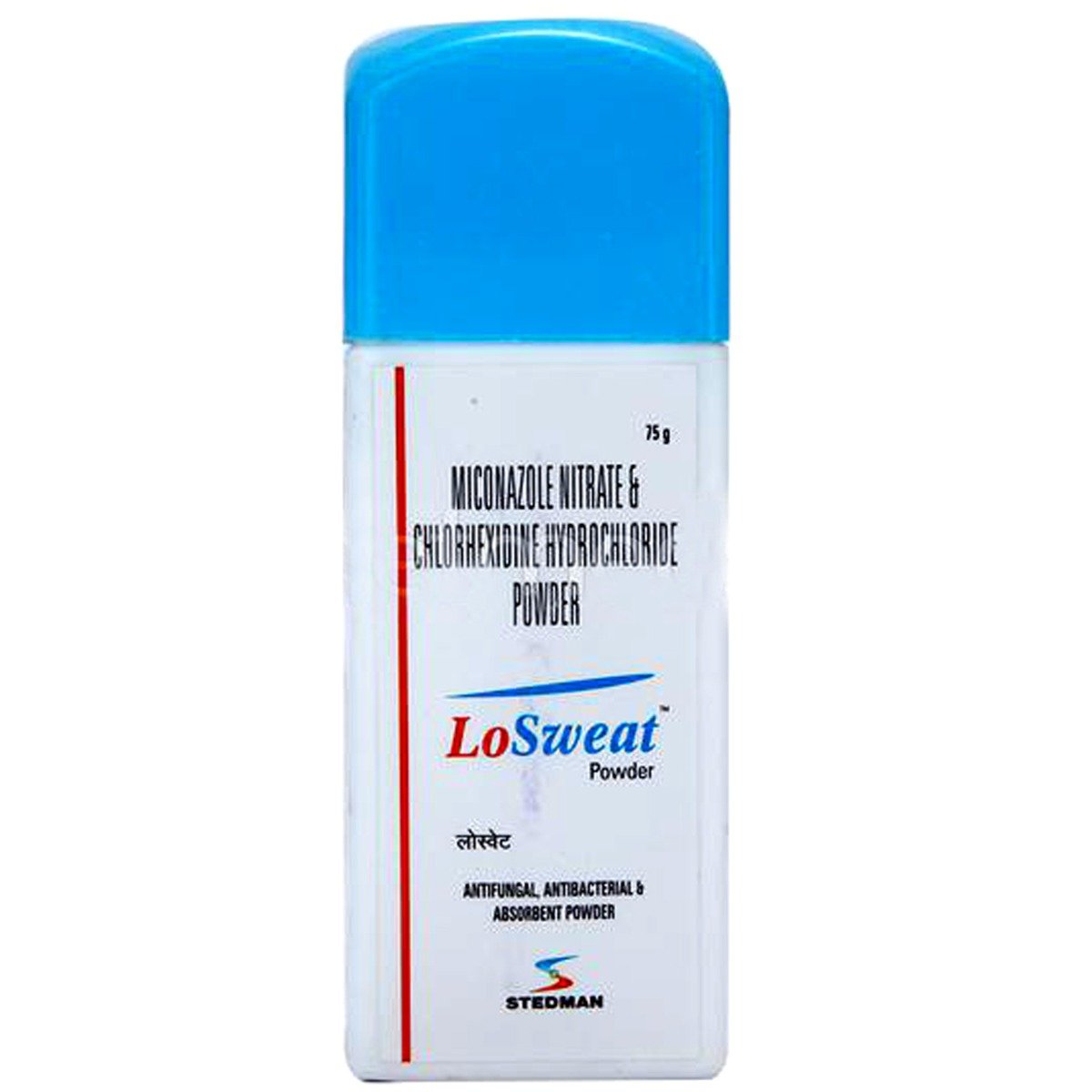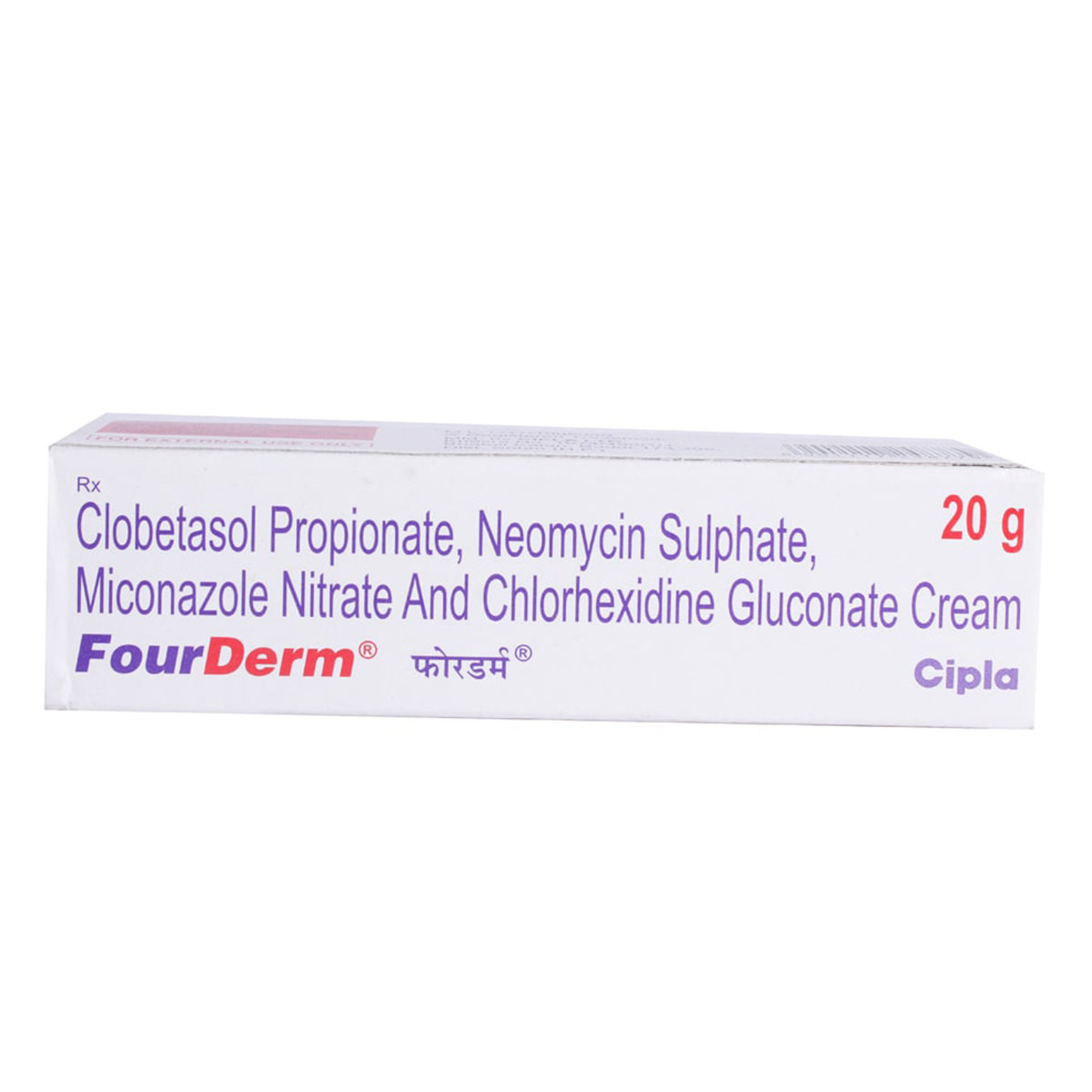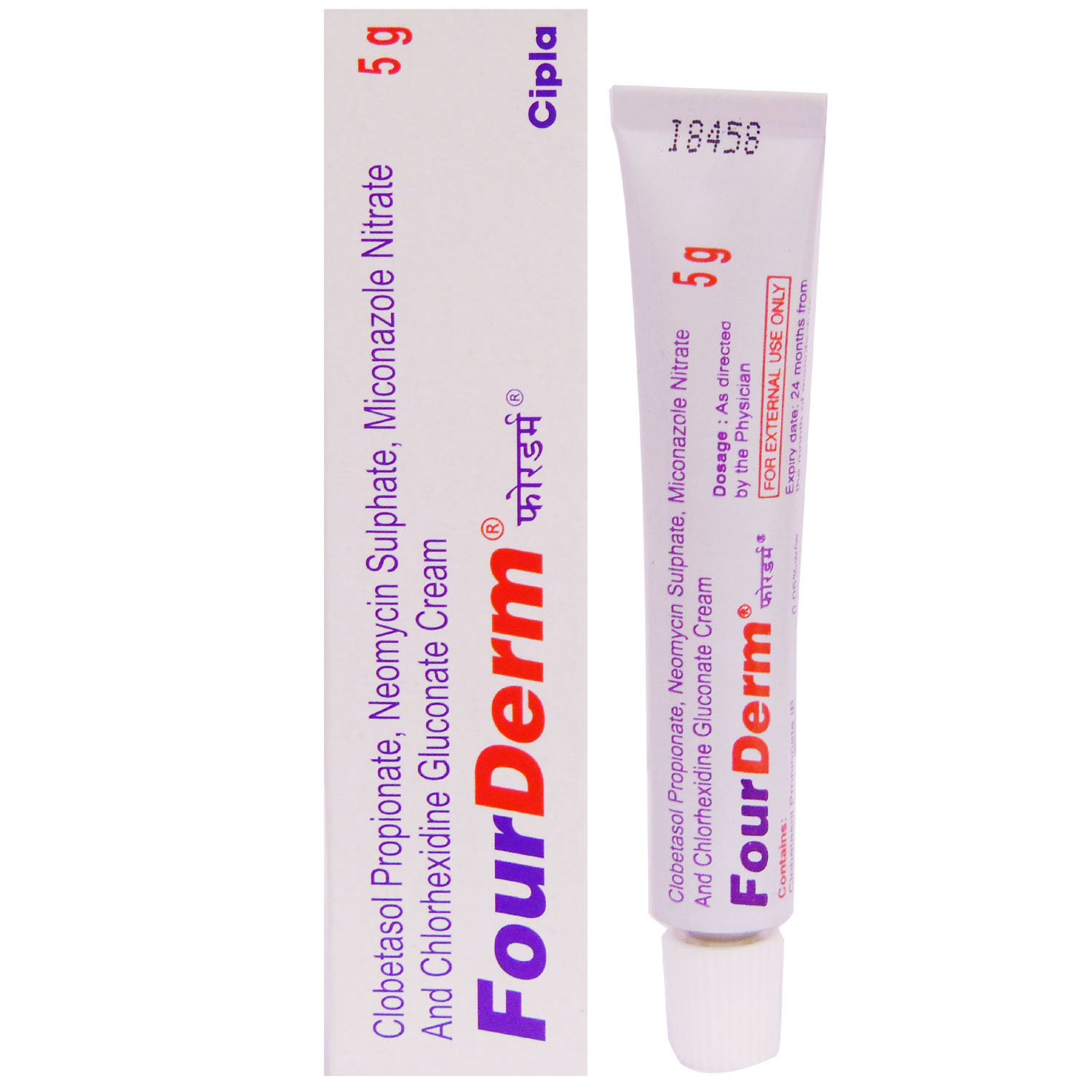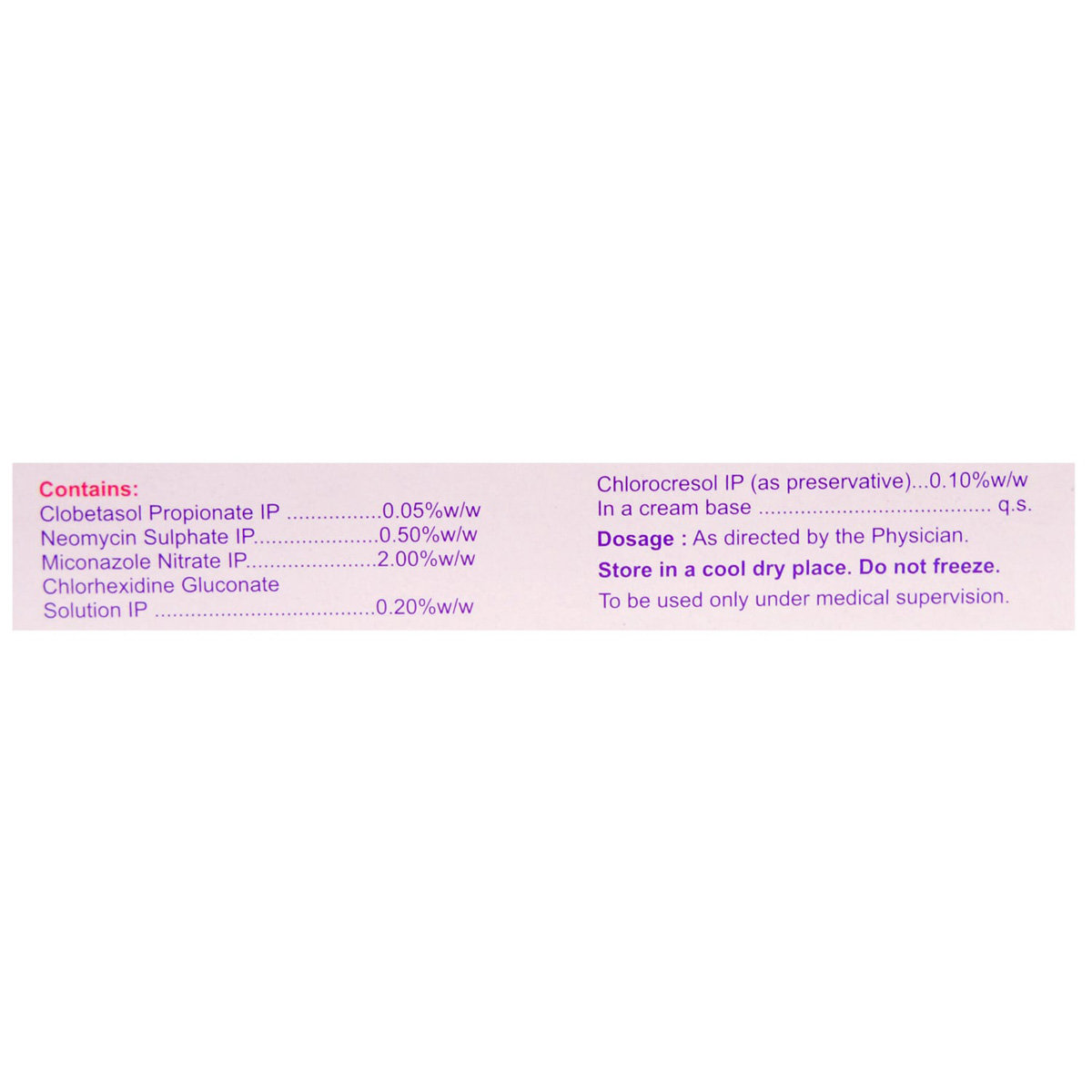Miconazole+chlorhexidine
About Miconazole+chlorhexidine
Miconazole+chlorhexidine belongs to a group of medicines known as 'anti-fungal/ anti-bacterial' used to treat different type of skin infections such as athlete's foot (ringworm of the foot), jock itch (ringworm of the groin), ringworm and seborrheic dermatitis (dry, flaking skin or dandruff) and bacterial infections. Fungal infection occurs when a fungus invades and affects the tissue on the skin. Fungi can live in the air, soil, water and plants. Symptoms of a fungal infection include skin rash, irritation, redness and scaling of the skin. Bacterial infection occurs when harmful bacteria grow in the body and causes illness.
Miconazole+chlorhexidine is composed of two medicines: Miconazole and Chlorhexidine. Miconazole stops the growth of fungi by causing damage and leakage to the fungal cell membrane. Chlorhexidine has both bactericidal (kills bacteria) as well as bacteriostatic (inhibits bacterial growth) properties that kill the bacteria by disrupting the cell wall.
Use Miconazole+chlorhexidine as suggested by the doctor. Miconazole+chlorhexidine may have common side effects that include itching, dryness, redness and burning sensation at the application site. Dryness, hair discolouration and abnormal hair texture are common side effects for the shampoo form.
Let your doctor know if you have any allergic reactions to Miconazole+chlorhexidine or any other medicine present in it. Avoid going near naked flames since Miconazole+chlorhexidine can cause fire easily while being treated with topical forms. Use of Miconazole+chlorhexidine is contraindicated in people with liver disease, diabetes, asthma, sulfite allergy, an autoimmune disorder, cataract or glaucoma, osteoporosis (weak and brittle bones), thyroid diseases and heart problems (with prolonged QT wave of heartbeat), hence, inform your doctor before using Miconazole+chlorhexidine. Pregnant and breastfeeding mothers should consult the doctor before starting Miconazole+chlorhexidine.
Uses of Miconazole+chlorhexidine
Medicinal Benefits
Miconazole is an antifungal and medication. It is used to treat various fungal infections, such as jock itch, athlete's foot, seborrheic dermatitis (dry, flaky skin on the face, scalp, chest, upper back, or ears), and pityriasis (a type of skin rash that causes scaly, discolored patches on chest, back, legs and arms). While Chlorhexidine helps to clear out the bacterial infection. It also prevents infection that may be caused by the injection, surgery and skin injury.
Directions for Use
Storage
Side Effects of Miconazole+chlorhexidine
Dusting powder:
- Itching
- Dryness
- Redness
- Burning sensation at the application site on the skin
Shampoo:
- Dryness
- Hair discolouration
- Abnormal hair texture
Drug Warnings
Avoid contact of topical Miconazole+chlorhexidine with nose, mouth or eyes as it may irritate. In case Miconazole+chlorhexidine comes in contact with these areas accidentally, rinse with water thoroughly. If you are pregnant, planning for pregnancy or breastfeeding mother, please consult a doctor before using Miconazole+chlorhexidine. Avoid smoking or going near naked flames since Miconazole+chlorhexidine can catch fire and burn easily. Tell your doctor before using Miconazole+chlorhexidine if you have asthma, sulpha medicine allergy, an autoimmune disorder, diabetes, cataract or glaucoma, osteoporosis (weak and brittle bones), thyroid diseases, heart or liver problems, inform your doctor. Miconazole can cause serious harm to your liver that may result in a liver transplant or cause even death. Miconazole+chlorhexidine should not be used to treat fungal infections of the fingernails/toenails, prostate cancer or Cushing's syndrome. Miconazole+chlorhexidine can make your skin sensitive to the sunlight and cause sunburn, hence avoid direct exposure to the sunlight. Apply sunscreen (SPF 30 or higher) when you go outdoors.
Drug Interactions
Drug-Drug Interaction: Miconazole+chlorhexidine may interact with medicines used to treat heartburn and acidity (omeprazole), immunosuppressant medications (cyclosporine), glucocorticoids (fluticasone, hydrocortisone), antifungal medications (fluconazole), antidepressants medications (escitalopram), blood cholesterol-lowering medicines (atorvastatin), bronchodilators (albuterol), blood thinners (warfarin), laxative (polyethylene glycol 3350), antianxiety medications (alprazolam) and drugs treating fluid retention (furosemide).
Drug-Food Interaction: Miconazole in Miconazole+chlorhexidine may interact with caffeine-containing tea, coffee, cola and energy drinks.
Drug-Disease Interaction: If you have asthma, diabetes, sulphite allergy, an autoimmune disorder, cataract or glaucoma, osteoporosis (weak and brittle bones), thyroid diseases, heart or liver problems, inform your doctor before using Miconazole+chlorhexidine.
Drug-Drug Interactions Checker List:
Safety Advice

Alcohol
cautionNo interaction found/ established. Please consult your doctor before using Miconazole+chlorhexidine.

Pregnancy
cautionPlease consult your doctor if you are planning to become pregnant or already pregnant before starting Miconazole+chlorhexidine.

Breast Feeding
cautionPlease consult the doctor before using Miconazole+chlorhexidine if you are a nursing mother.

Driving
safe if prescribedMiconazole+chlorhexidine has no or negligible influence on the ability to drive or use machines.

Liver
cautionLet your doctor know if you have any history of liver diseases or hepatic impairment. Your doctor will weigh the benefits and potential risks before prescribing Miconazole+chlorhexidine. However, it is not recommended in patients with severe liver diseases.

Kidney
cautionLet your doctor know if you have any history of kidney diseases. Your doctor will weigh the benefits and potential risks before prescribing Miconazole+chlorhexidine. However, it is not recommended in patients with severe kidney diseases.

Children
cautionMiconazole+chlorhexidine is not recommended for use in children under four years of age. Your doctor will decide the dosage based on the child's age and weight.
Habit Forming
Diet & Lifestyle Advise
- Always wear loose-fitting clothes to avoid further sweat and spread of the fungal infection.
- Do not scratch the affected area of skin as it can spread the infection to other body parts.
- Avoid sharing towels, combs, bedsheets, shoes or socks with others.
- Wash your bedsheets and towels regularly.
- Wash your socks, stockings and tights in hot water regularly. Avoid shoes that make your feet sweaty and hot.
- Do not walk barefoot at places like gym showers to prevent fungal infections.
Special Advise
- It is advised to reach out to your doctor if the fungal infection symptoms persist or worsen after two to four weeks of treatment. Before applying Miconazole+chlorhexidine, clean and dry the affected area.
- Avoid contact of Miconazole+chlorhexidine with nose, mouth or eyes. If Miconazole+chlorhexidine comes in contact with these areas accidentally, rinse with water thoroughly. Do not wash the treated areas for a minimum of 3 hours after you apply Miconazole+chlorhexidine.
Patients Concern
Disease/Condition Glossary
Fungal infection: A fungal infection (also called mycosis) is a skin disease caused by a fungus when it invades the tissue. Fungal infections can be contagious and spread from one person to another.
Ringworm: Ringworm is a common fungal infection of the skin or scalp and causes a rash resembling a worm in a ring shape.
Athlete's foot: It is a fungal infection between the toes due to sweating.
Jock itch: A fungal infection in the skin of the genitals, inner thighs and buttocks.
Seborrheic dermatitis: Seborrheic dermatitis is a skin condition that causes an itchy rash with dry, flaky scales on the skin that contains oil glands such as the scalp, face, back and upper chest.
Bacterial Infection: A bacterial infection is a condition in which harmful bacteria enter, multiply and infect our body. It can target any body part and multiple very quickly.
FAQs
Miconazole+chlorhexidine consists of Miconazole, an antifungal drug, stops fungi's growth by causing damage and leakage to the fungal cell membrane.
Miconazole+chlorhexidine is safe to use with doctor's advice for 2-4 weeks. Let your doctor know if your symptoms are not relieved by then or experience any side effects.
Miconazole+chlorhexidine is for topical (for skin) use only. If the medicine gets into your eyes, nose, mouth or vagina, rinse with cold water. Do not apply Miconazole+chlorhexidine on open wounds, lesions and blisters.
Please consult your doctor before using Miconazole+chlorhexidine if you have other skin infections, liver disease, asthma, sulphite allergy, an autoimmune disorder, diabetes, cataract or glaucoma, osteoporosis (weak and brittle bones), thyroid diseases and heart problems (with prolonged QT wave of heartbeat). Let your doctor know if your allergic to Miconazole+chlorhexidine or any of its components.
You are required to maintain at least a three-hour gap after application of Miconazole+chlorhexidine if you are using more than one topical medicine.
It is advised not stop using Miconazole+chlorhexidine on your own even if the symptoms are relieved until your course advised by the doctor is finished.
Miconazole in Miconazole+chlorhexidine is a pregnancy category C drug and may be unsafe to use during pregnancy since it may have harmful effects on the foetus. Please consult your doctor if you are planning to become pregnant or already pregnant before starting Miconazole+chlorhexidine.








